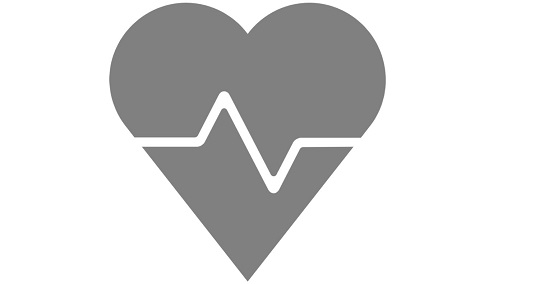 Wellbeing
Wellbeing
Aim: Foster comprehensive programs and leadership commitment to a culture that supports caregivers with their physical, emotional, mental, and financial health; social connectivity; and a sense of fulfillment on the job.
Task Force Recommendations Address:
-
-
- Promoting important leadership traits
- Further employee empowerment
- Mental health and substance use resources
- Job redesign initiatives
- Forums that provide staff a voice
- COVID-19 Spotlight
-
View the Task Force Report here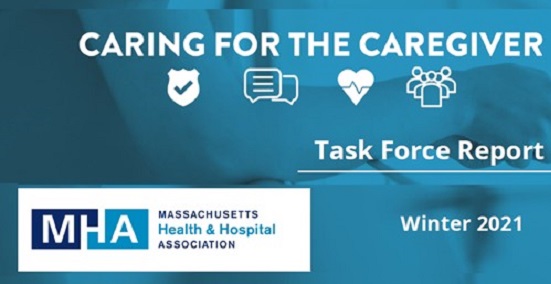
If you are interested in learning more about this work from task force leaders, we encourage you to check out this Caring for the Caregiver webinar.
Latest Resources:

Building Workforce Resilience at the Individual and Organizational Levels
Read the case study from Houston Methodist.
»Full Article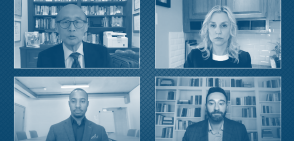
Roundtable Discussion: Caring for the Healthcare Workforce
A roundtable discussion on effective ways to care for and improve the well-being of the health care workforce.
»Full Article
ANA Rolls out New Nurse Burnout Prevention Program
The American Nurses Association has partnered with SE Healthcare to provide its members with free access to the program.
»Full Article
AHA: “Expanding the Reach” Workforce Strategies Guide
New section focuses on hiring veterans, professional governance models, and academic-practice partnerships.
»Full Article
ANA & AONL: Models of Care Insight Study
The study is intended to "probe and validate the current demand for change, the support of various roles and programs, and the gap between leadership and the frontline."
»Full Article
AONL’s Releases Third Section of its Workforce Compendium
This section focuses on academic-practice partnerships, culture of inquiry, and total rewards.
»Full Article
MHA Launches New Workforce Toolkit
Building on the success of our Workforce Summit, MHA developed an interactive toolkit to share just a few of the best and emerging practices to address current workforce challenges.
»Full Article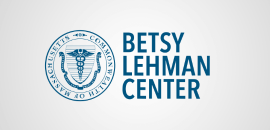
Story: Hospitals align care with new state requirements for patients with dementia
The unique safety and care needs of geriatric patients are receiving increased attention in hospitals, due in part to new state requirements for identifying patients with dementia and optimizing their care.
»Full Article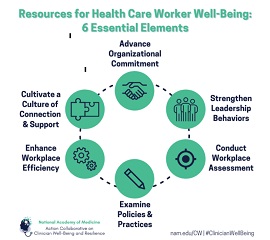
NAM launches AHA-supported resource compendium for health care worker well-being
NAM launches AHA-supported resource compendium for health care worker well-being. The National Academy of Medicine today launched Resource Compendium for Health Care Worker Well-Being, which highlights tools that are ready to be deployed and strategies to address systems issues related to health care workers’ burnout. The compendium, which is a product of the Action Collaborative on Clinician W...» Full Article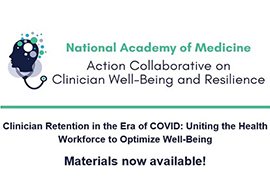
National Academy of Medicine, Action Collaborative on Clinician Well-Being and Resilience
The recording, presentations, and chats are now available from the recent meeting on Clinician Retention in the Era of COVID: Uniting the Health Workforce to Optimize Well-Being, which aimed to learn from those who have developed pathways forward with well-being as the key. Read more ...» Full Article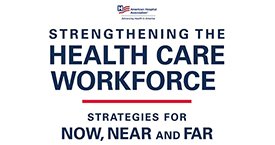
Strengthening the Healthcare Workforce
The American Hospital Association’s Task Force on Workforce has released a new resource to help hospitals navigate workforce challenges and opportunities, as well as highlight strategies, resources, and case studies to assist on these pivotal efforts. Included in this resource is Section 1 focusing on Support the Team through addressing wellbeing, support behavioral health, and workplace violen...» Full Article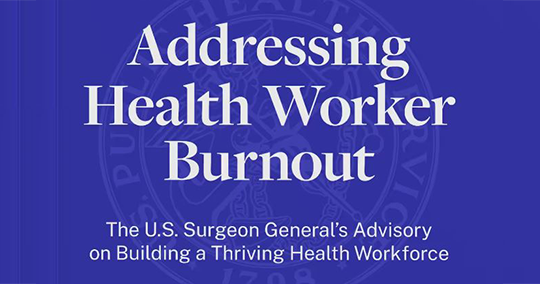
Health Worker Burnout: Our health depends on the well-being of our health workforce.
Let’s take care of those who are always there to care for us. Read more... ...» Full Article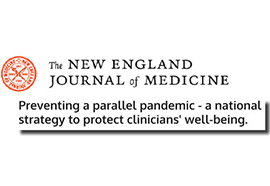
New England Journal of Medicine, Preventing a Parallel Pandemic — A National Strategy to Protect Clinicians’ Well-Being
“We have a brief window of opportunity to get ahead of two pandemics, the spread of the virus today and the harm to clinician well-being tomorrow. If we fail, we will pay the price for years to come. In the race to respond to the Covid-19 crisis, we must not neglect to care for those who care for us.” Read more... ...» Full Article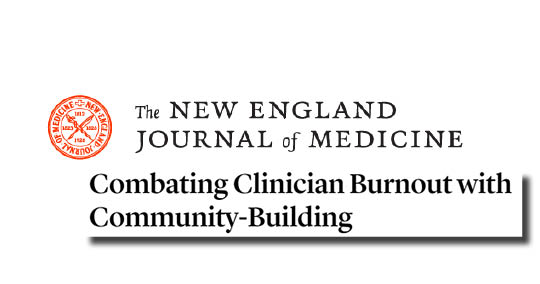
New England Journal of Medicine, Combating Clinician Burnout with Community-Building
Improving morale and reducing turnover with peer-support meetings and shared group email lists for clinicians. Read more... ...» Full Article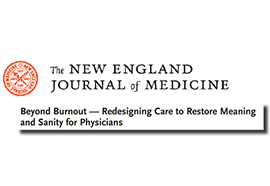
New England Journal of Medicine, Beyond Burnout — Redesigning Care to Restore Meaning and Sanity for Physicians
High burnout rates among physicians are taking a high financial and human toll. Burnout can undermine a physician’s sense of purpose and altruism and lead to substance use, depression, and suicidality. Some medical organizations are starting to tackle the challenge. Read more... ...» Full Article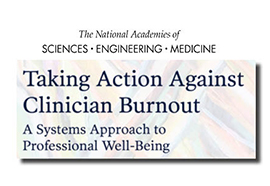
National Academies of Sciences, Engineering, & Medicine, Taking Action Against Clinician Burnout: A Systems Approach to Professional Well-Being
This report explores the extent, consequences, and contributing factors of clinician burnout and provides a framework for a systems approach to clinician burnout and professional well-being, a research agenda to advance clinician well-being, and recommendations for the field. Read more... ...» Full Article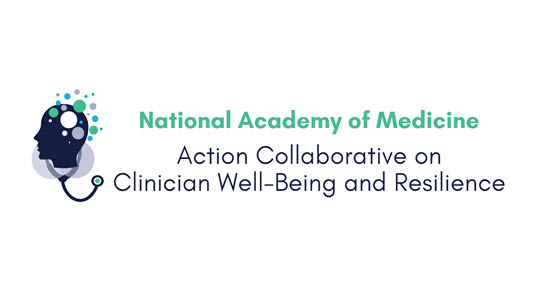
National Academy of Medicine, Action Collaborative on Clinician Well-Being and Resilience
In 2017, the National Academy of Medicine launched the Action Collaborative on Clinician Well-Being and Resilience, a network of more than 200 organizations committed to reversing trends in clinician burnout. Read more... ...» Full Article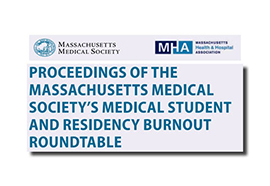
Massachusetts Medical Society, Massachusetts Health & Hospital Association, Proceedings of the Massachusetts Medical Society’s Medical Student and Residency Burnout Roundtable
This Roundtable served as an information exchange intended to build and strengthen collaborations across Massachusetts academically affiliated medical institutions and schools and to advocate for the aforementioned stakeholder engagement priorities. Read more... ...» Full Article
Massachusetts Health & Hospital Association, Massachusetts Medical Society, Reliant Medical Group, Changing the EHR from a Liability to an Asset to Reduce Physician Burnout
The MMS-MHA Joint Task Force on Physician Burnout listened to Reliant’ s Medical Director for Informatics Dr. Larry Garber explain how his team optimized their EHR to improve physician usability. This report lists of EHR-optimization techniques Dr. Garber shared with the task force, which we would urge our members to consider for implementation. Read more... ...» Full Article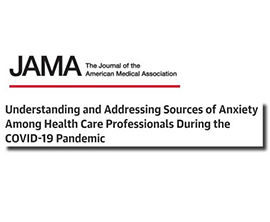
Journal of the American Medical Association, Understanding & Addressing Sources of Anxiety Among Health Care Professionals During the COVID-19 Pandemic
This Viewpoint summarizes key considerations for supporting the health care workforce so health care professionals are equipped to provide care for their patients and communities. Few of these considerations and suggestions have substantial evidence to support them; they are based on experience, direct requests from health care professionals, and common sense. Read more... ...» Full Article
Cigna, Creating a Workplace Wellness Committee: A Toolkit for Employers
Workplace wellness programs offer ways to help people get healthy and stay healthy. Implementing a comprehensive workplace wellness program is an excellent way to help individuals practice healthy lifestyles and change unhealthy habits to reduce their risks of developing high-cost health problems. This toolkit has helpful tips, tools and resources you can use to recruit, organize and manage an ef...» Full Article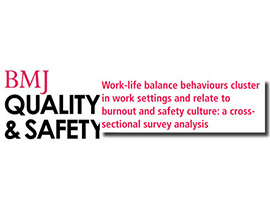
BMJ Quality & Safety, Work-Life Balance Behaviors Cluster in Work Settings & Relate to Burnout & Safety Culture: a Cross-Sectional Survey Analysis
Healthcare is approaching a tipping point as burnout and dissatisfaction with work-life integration (WLI) in healthcare workers continue to increase. A scale evaluating common behaviors as actionable examples of WLI was introduced to measure work-life balance. This is an open-access article distributed in accordance with the Creative Commons Attribution Non-Commercial (CC BY-NC 4.0) license. R...» Full Article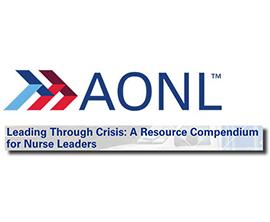
American Organization for Nurse Leadership, Leading Through Crisis: A Resource Compendium for Nurse Leaders
To help you lead confidently during times of crisis, AONL has developed a growing compendium of leadership resources to support you in caring for yourself and your team. Read, listen and engage in brief exercises for practical insights and effective strategies for coping, staying centered, building resilience and leading with integrity amidst challenging circumstances. Read more... ...» Full Article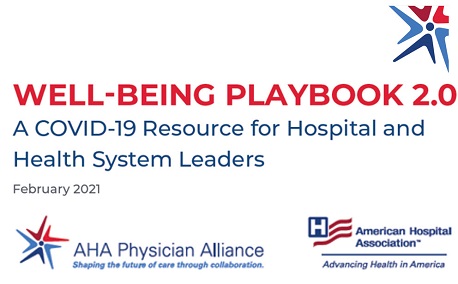
American Hospital Association, Well-being Playbook 2.0: A Guide for Hospital and Health System Leaders
This AHA document is a playbook on well-being tailored specifically for health system leaders to address burnout in their organizations. It contains seven key steps for success and provides real-world case examples of successful interventions deployed in various health system settings to illustrate the steps. Read more... ...» Full Article
Massachusetts Health & Hospital Association, Massachusetts Medical Society, A Crisis in Health Care: A Call to Action on Physician Burnout
Physician burnout — a condition in which physicians lose satisfaction and a sense of efficacy in their work — has become widespread in our profession, driven by rapid changes in health care and our professional environment. Driven by experience and the mountainous body of evidence on the causes and impacts of physician burnout, this report is a call to action to begin to turn the tide before ...» Full Article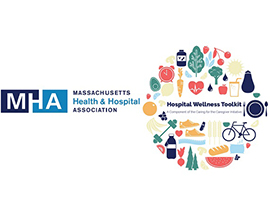
MHA Hospital Wellness Toolkit
Many hospitals, health systems, and physician practices currently have what can be termed generally as “wellness” programs – that is, initiatives that attempt to create a healthier and happier workforce that will, in turn, help healthcare workers be better able to handle the stresses of their jobs and provide improved care to the patients they serve. Other facilities may be on the path to...» Full Article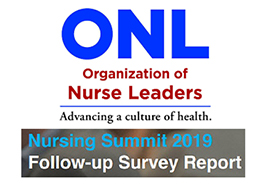
Organization of Nurse Leaders, Nursing Summit 2019 Follow-up Survey Report
In January 2019, ONL, together with nine other professional nursing organizations led a first-of-its-kind Nursing Summit in central Massachusetts that brought together 380 Registered Nurses to hear their concerns and feedback and enhance trust among nurses. With a robust amount of data from the Nursing Summit, ONL sought to gain further understanding and insight from Nursing Summit participants b...» Full Article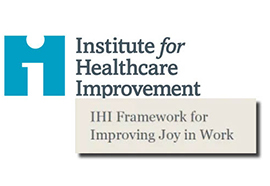
Institute for Healthcare Improvement, Framework for Improving Joy in Work
This white paper is intended to serve as a guide for health care organizations to engage in a participative process where leaders ask colleagues at all levels of the organization, “What matters to you?” — enabling them to better understand the barriers to joy in work, and co-create meaningful, high-leverage strategies to address these issues. Read more... ...» Full Article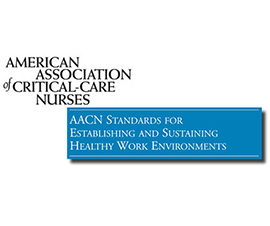
American Association of Critical-Care Nurses, AACN Standards for Establishing and Sustaining Healthy Work Environments: A Journey to Excellence, 2nd Edition
For more than 3 decades, AACN has advocated for principles such as interprofessional collaboration and effective leadership that are essential to healthy work environments. The standards in this document extend this legacy and support the National Academy of Medicine’s declaration that nurses are uniquely positioned to play an integral role in the transformation of healthcare. Read more... ...» Full ArticleTranslate »
